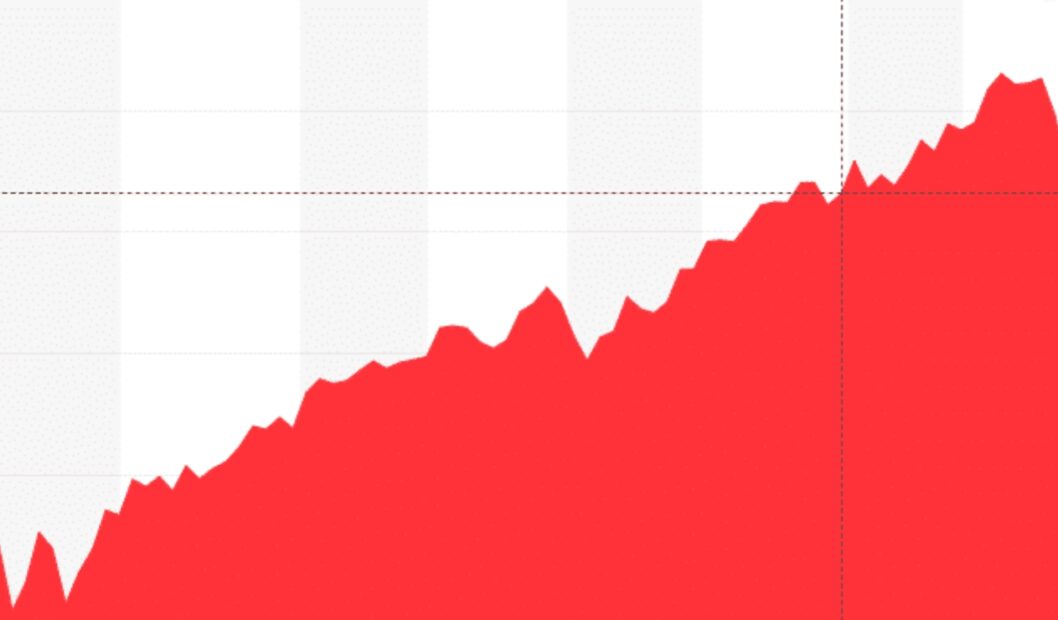Is the economy in a recession right now? It depends on who you ask and has proven to be a surprisingly contentious question.
And, of course, recent tariff changes and shifts in U.S. trade policy have started up a whole new wave of speculation. It’s really tough to know what they economic impacts will be. Recession? Inflation? Both at the same time? It’s anyone’s guess.
But no matter what, you can prepare for the maybe-happening, maybe-not-happening recession by focusing on recession-proof products. Weirdly, some items just seem to sell more when the economy is bad. It’s a good idea to keep some of them stocked in your eCommerce store.
This might sound too good to be true, but it’s not. Some products just happen to sell well, or even better, when the economy is bad. And we can prove that statement with real data from the recessions of 2001, 2008, and 2020.
We all know the economy swings up and down wildly. No one knows why the market does what it does. What we do know is that recessions will happen from time to time. It’s inevitable.
Trying to guess when a recession is going to happen is a fool’s errand. A much better idea? Always have room in your inventory for products that sell well in a recession. That way, when one comes, you’re ready!
So with that in mind, we’re going to talk about 16 recession-proof products that will keep money rolling in even when the economy isn’t doing so hot.
What makes a product recession-proof according to economists?
Scroll down a bit more if you are in a hurry to get to the list.
Otherwise, pay attention, because when you understand why certain products do better when the economy sours, you’ll be able to improvise. And that’s much more useful than following a list!
Think about the kind of companies that perform well in recessions. Utility companies do well. Tobacco, alcohol, fast food, and soft drinks do well. Consumer staple companies like Kimberly-Clark, Colgate-Palmolive, Procter & Gamble, and Johnson & Johnson do well.
In short, necessities and vices don’t suffer when recessions come. This may sound like bad news since many consumer products sold online are luxuries purchased with discretionary income. But it’s not: and there’s a simple principle at work behind the changes in consumer behavior during a recession.
Cheaper products perform better in a recession.
I know. I know. But it’s worth saying because it helps us understand some important second-order effects.
Think about it: if you sell something inexpensive, such as Hershey’s Kiss chocolates, you might benefit from the economic downturn. A Big Mac is a lot cheaper than dinner night at a fancy sit-down restaurant. Camping is cheaper than a lavish vacation. Repairing a car is cheaper than buying a new one.
And I think it’s important that note that this is even more critical now. Recent tariffs will probably raise the price floor on many imported goods, making inexpensive domestic or substitute products more attractive.
In a Harvard Business Review article from 2023, M. Berk Talay, professor at University of Massachusetts Lowell, made the following statement. “A recession might be the ideal time to launch your product no matter what it is.”
Keep that in mind if you feel overwhelmed by the risks of running a business with the DOW is down.
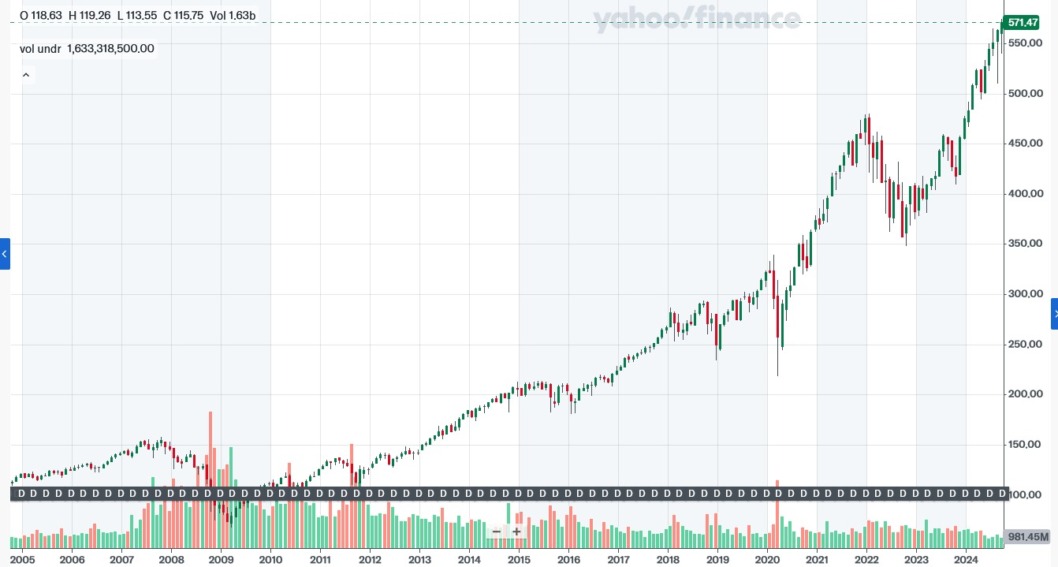
What makes a product recession-proof according to business owners?
Of course, what we described above is a bit academic. It may also help to consider the anecdotes of founders who have been previously impacted by recessions as well.
“Essentially, recession-proof products can be any item that people need to survive in its most literal sense,” says Nate Banks, Founder of Crazy Compression, which sells compression socks. “No, this does not include streaming services or food delivery apps. Recession-proof products are consumer staples like food, hygiene, household, and personal care products. Pet necessities like pet food and cat litter are also considered recession-proof. These are things that people quite literally can’t live without. They are not luxury or entertainment items that people can easily forego during economic downturns.”
Brandon Hartman, Founder of Beyblades enthusiast website, BeyWarehouse, has a different take. “I classify recession-proof products into two broad categories. The first one is more obvious; it’s composed of non-negotiables that will always find a market no matter the state of the economy.” The examples he goes on to cite are strikingly similar to Banks’ prior statement.
Hartman goes on to state that “the second category is composed of highly-niched products whose success depends on dedicated fanbases and curated communities. These consumers tend to continue patronizing these products regardless of the state of the economy.”
These founders’ statements seem to also suggest again that recessions open up new opportunities. You just have to know where to look.
16 Recession-Proof Products You Can Sell Online
We’d now like to share some ideas for recession-proof products that you might consider investing in during, or before, a recession. Here are sixteen ideas to get your wheels turning.
1. Consumer staples
There are some items that you need no matter what the stock market is doing. Your customers will always need detergent, toothpaste, napkins, tissues, bottled water, and canned goods no matter what.
That’s why these items are called consumer staples and they come in six categories: beverages, food and staples retailing, food products, household products, personal products, and tobacco.
Because consumers’ need for these products doesn’t fluctuate, businesses that sell them will continue to see stable revenue, and perhaps even some steady growth.
2. Camping gear
Lavish vacations to distant lands are not as attractive during recessions. Yet the need to “get away from it all” doesn’t go away when the economy is bad. If anything, that escapist urge grows!
The data backs me up here too. In an article written by US News in 2009, Coleman posted higher sales of tents, coolers, stoves, sleeping bags, and fishing gear. The same article notes that fishing and camping permits went up by 10% between 2008 and 2009 and that canning jars and Rawlings sporting goods posted 12% higher revenue in 2009 than 2007.
In the 2020 recession, we saw something similar happening as well. People Googled “camping” more in 2020 than at any point in the last five years. Makes sense, too, with all the travel restrictions put in place for the COVID-19 pandemic!
3. Automotive parts
No matter what the S&P 500 says, people still need to go to work, the store, and the doctor. And for many people in the US, that requires a working vehicle. When times are good, people are more likely to buy new cars. But what about when times are bad?
People keep their used cars for longer. When your 401(k) gets clobbered and your pay gets cut, the idea of buying a brand new Lexus is off the table. But repairing your 2006 Honda Civic becomes much more attractive!
During recessions, people are a lot less likely to treat their beloved cars and trucks as disposable, which is good news for mechanics and part manufacturers. And if imported cars become more expensive with the new tariff policies implemented by the U.S., this will likely prove even more true.
And sure, it may not be realistic for you to sell alternators, batteries, and transmissions. But you can always sell the little air freshening trees that hang on rearview mirrors, or in-car trash bags to hold crushed soda cans and discarded snack bags.
4. Coffee and tea
I probably consumed a quart of coffee writing this post and another while editing the video up at the top. I am, after all, one of the 64% of American adults who currently consume coffee every day.
People love caffeine, and that’s why, much like tobacco and alcohol, caffeinated beverages do not suffer as much from the economic pressures of a recession!
Fortunately, with coffee and tea, there is a lot of room to differentiate your product from others. Just take a look at Amazon or Etsy and appreciate for a moment all the different coffee and tea flavors that creative people have been able to come up with over the years!
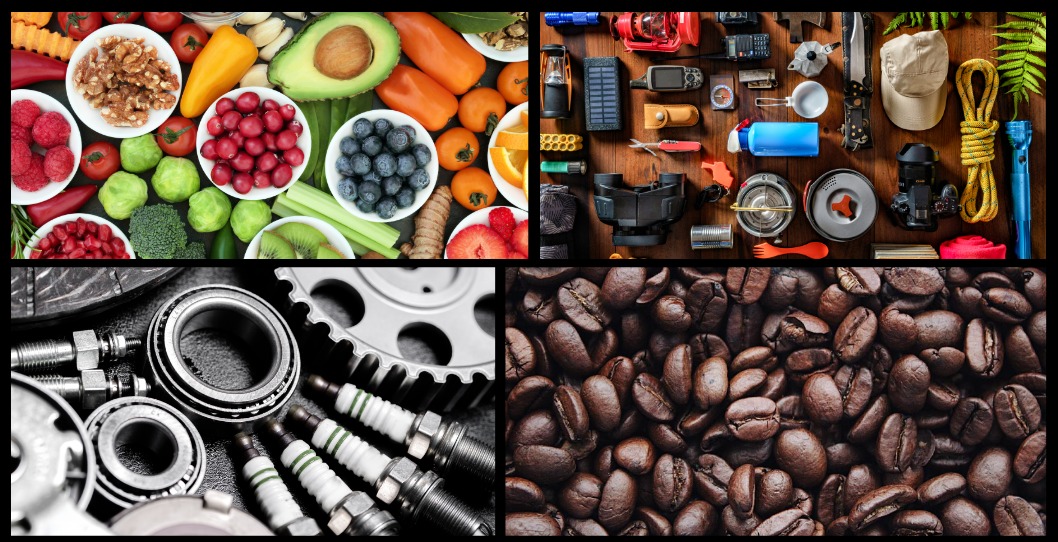
5. Tupperware
People don’t eat out as much during recessions. They prefer to make food at home instead. But you still need a way to store leftovers! That’s where tupperware comes in.
Tupperware was one of the big winners during the global financial crisis in 2008 and 2009. And of course, during the pandemic recession when eating out was considered to be dangerous for your health, tupperware sold like hotcakes.
6. Candy
When the economy tanks, it’s really stressful. Job prospects are grim and hours are long. Many workers in high-stress situations find themselves reaching for the candy bowl, filled to the brim with sugary sweets and cheap chocolates.
It’s for this reason that candy is a juggernaut of recession survival. Cadbury’s profits went up by 30% in 2008 and Nestle’s went up by 11% at the same time. This is not just some freak incident either. Chocolate sales grew by 12% in 2020 as well as people turned to comfort foods.
7. Cosmetics
The desire to look good doesn’t go away when the economy takes a dive. However, instead of extreme makeovers, expensive haircuts, and new wardrobes, women look to cheaper options. For that reason, cosmetics companies have a surprisingly easy time surviving recessions. Even nail salons did pretty well in 2009 (though not 2020 for obvious reasons).
It may seem paradoxical that people still buy luxury goods such as cosmetics in a crisis, but the tendency has been studied over the course of several recessions. There’s even a name for it: lipstick effect. “Instead of buying expensive fur coats, people will buy expensive lipstick.”
8. Pet care products
People love their pets! And when the S&P 500 decides to aim for the zero mark, people spend more time at home with them. So naturally, to relieve some of their stress, people want to pamper their pets!
The demand for pet products continued to grow through both the 2001 and 2008-2009 recessions according to MarketWatch. Then according to another article by Supermarket News, the pet industry broke $100 billion in 2020, posting a 6.7% increase over 2019.
So what can you sell? Shopify recommends you sell pet bowls, toys, and beds, pet treats, grooming supplies, and even adorable pet apparel! Even rising costs due to trade policy changes aren’t likely to dent this trend. Pet owners continue to prioritize spending on their companions.
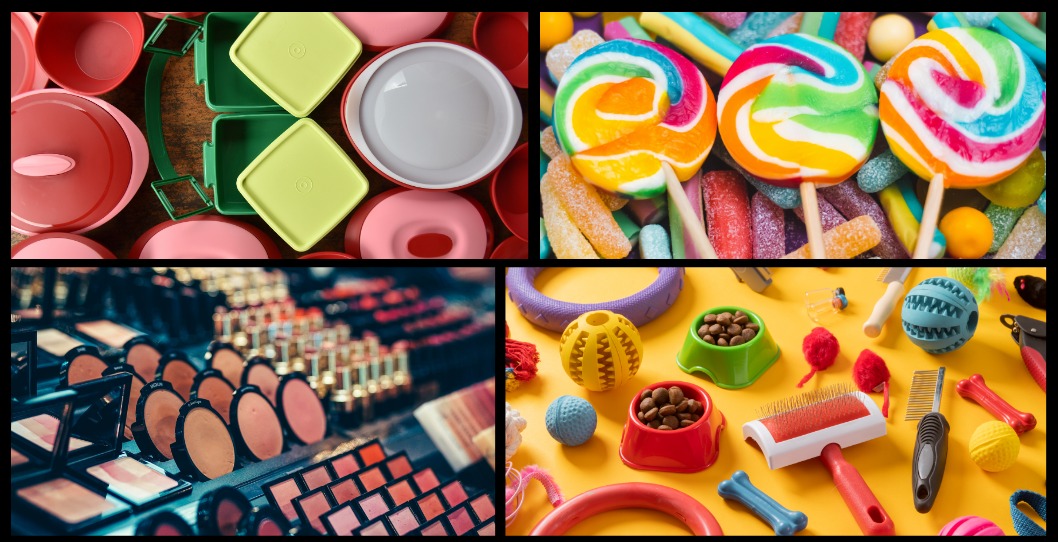
9. Movies, TV, and video games
A night on the town is expensive. A night indoors is not! People still need entertainment when the economy is bad, perhaps even more so than when the economy is good. During recessions, cheap entertainment – movies, TV, video games, and other similar products – see a jump in demand.
This was the case during the 2001 and 2008-2009 recessions. It was especially the case during the 2020 recession since stay-at-home orders naturally pushed people to movies, TV, and video games.
10. Clothing
People still wear clothes during recessions. Shirts will be undone by stray fabrics and all shoes eventually have their soles ground down to dust if used enough. If you sell clothing during an economic downturn, you are likely to be insulated from the worst impacts.
On the cheap end, clothes function like a consumer staple. People need them, so they’ll buy them. On the more expensive end, nicer clothes are one of the more affordable luxuries. As such, nice clothes benefit from the lipstick effect, just like candy and cosmetics.
11. Baby products
When you’re a parent, you have to take care of your child no matter what. For that reason, baby products – clothing, diapers, formula, and so on – continue to outperform the market as a whole. This is also true for daycare/childcare services, whose work increases when the economy turns sour and parents return to the workplace. (With the exception of the pandemic-driven 2020 recession, of course!)
If I could sum up the economic outlook of kid products in one statistic, it would be this: spending on children’s nonfiction books grew 66% in 2020.
12. Food and drink
Food and drink continue to be essentials during economic downturns. You may think that consumers turn to rice, potatoes, and tap water when money is tight, but this isn’t always this case! Many times, luxury food and drink products perform well for a few reasons:
- People need comfort (like with candy).
- Luxury goods still have some demand (like cosmetics).
- Fancy food and drink products are still cheaper than dining out.
That’s surprisingly good news for business owners who specialize in trendy products like organic flaxseed, hemp, and chia kombucha.
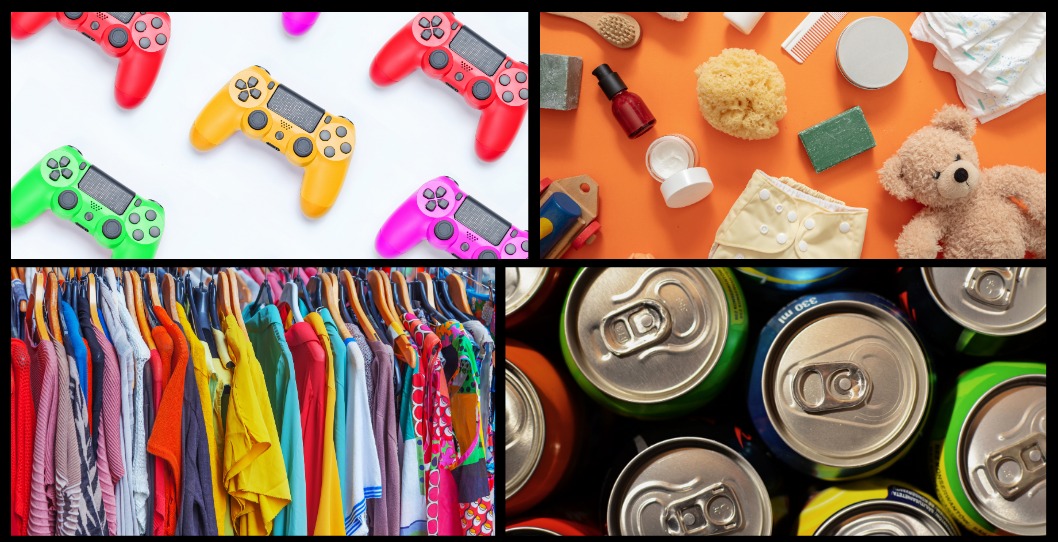
13. Kitchenware
You know how people don’t eat out as much during recessions. Well, even cooking from home isn’t a free activity. You have to buy the food, of course, but you will need supplies too. That’s why kitchenware tends to perform pretty well during recessions.
In particular, mason jars, silicone molds and spatulas, spiralizers, skillets, flatware, and oven mitts all sell well online and do well in recessions.
14. Sports and fitness products
Gym memberships are expensive. That’s why it’s hard to justify maintaining one during a recession like 2001 or 2008-2009, let alone a pandemic-driven one like 2020.
But people still want to stay fit, so they end up keeping their routines going at home. When recessions strike, that opens up lots of market opportunities in the fitness sector. You can sell resistance bands, exercise balls, yoga mats, sports apparel, and more online. That way people can maintain their active lifestyle while still pinching pennies!
15. Home renovation and repair supplies
During the 2008 financial meltdown, a lot of people did not want to buy houses for obvious reasons. But people still wanted to improve their surroundings, which led many people to remodel their homes even during 2008 according to industry experts.
And, of course, during the 2020 recession, many people started renovating their homes since they were stuck there all the time!
Today, rising material costs from tariffs and supply chain issues also encourage smaller, DIY-friendly projects over major renovations. This is to say nothing of upper middle class homeowners who may prefer to invest in their own home rather than a volatile market.
Now bear in mind that not every renovation involves adding a new roof, breaking down walls, or adding granite countertops to the kitchen. A lot of home renovation is cheap and involves products that can be easily sold online.
To name a few: artwork, pillows, lamps, small furniture, bedding, curtains, and general home decor. This is a fairly easy sector to break into, and you can even dropship some of these items.
16. Highly niche products
It’s enormously difficult to get a hardcore fan of something to leave their money in their wallet, even if their wallet is a bit lighter than usual.
Brandon Hartman, Founder of BeyWarehouse, says that “our main offering [of Beyblade toys] is one such example. During the pandemic, we experienced slight but nonetheless unexpected growth in sales even as the economy ground to a halt and eCommerce reeled from the supply chain crisis.”
This is consistent with his overall belief that highly-niched products tend to do well even during recessions because of their large fanbases and communities.

Final Thoughts
Even if the economy is terrible, you can still launch products and succeed. If the economy tanks tomorrow and you’re selling a lot of different items, you might even find some doing better than you’d expect.
It’s important to understand the dynamic behind all this. Necessities are still necessities even if the unemployment rate is high. “Little luxuries” will still be in demand when “big luxuries” are not affordable. And hardcore fans will keep buying niche products, even when they have less cash to spare.
We hope this list inspires you to make your business a little more resilient against recessions!
